The animal companion underwent a surgical procedure where advanced prosthetics were implanted to replace its lost limbs.
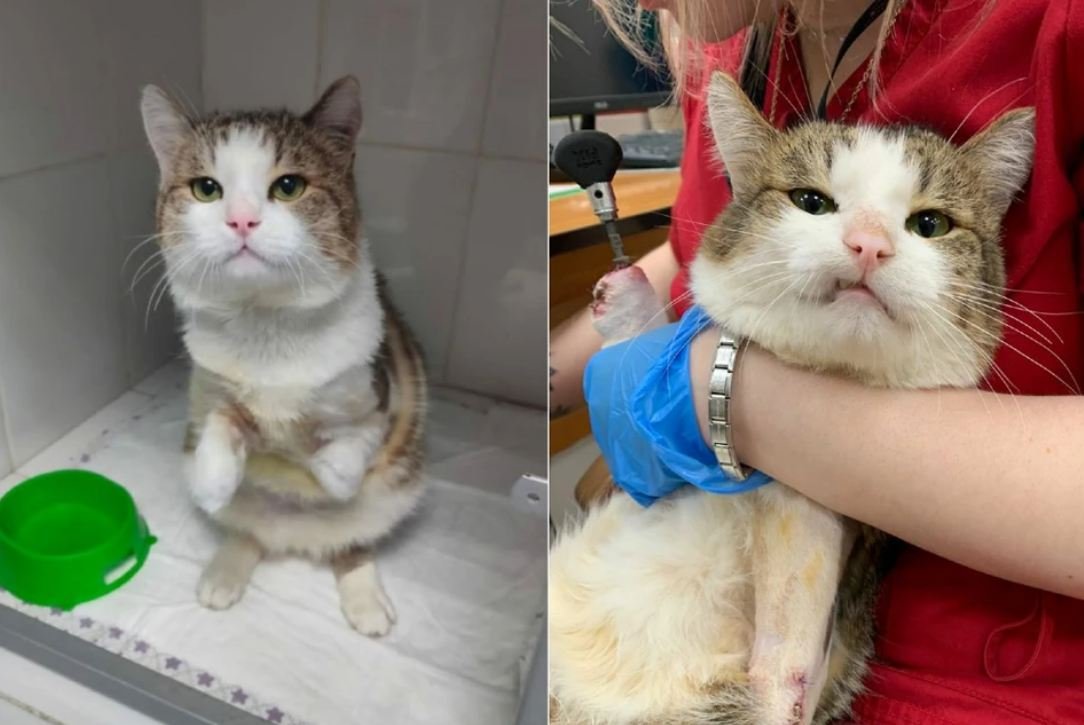
A cat in Barnaul had to learn to walk again after losing its front paws, but thanks to the help of individual prostheses, it can now move around with more ease. Animal rights activists found the feline during winter, and veterinarians discovered that its paws were missing due to a wound that had been chopped off. Despite not finding the perpetrator responsible for the injury, the cat has been given a new lease on life thanks to the dedication of those who cared for it and provided it with special prostheses.
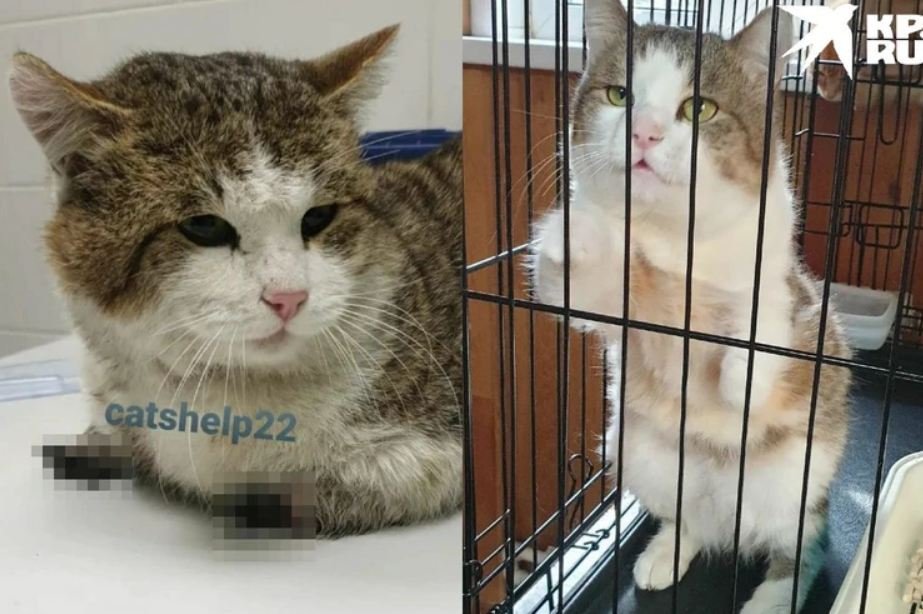
Wallaby, a wallaby, was discovered in freezing conditions with its legs severed. The feline that discovered him had blood poisoning and feline HIV. The animal was given antibiotics and a blood transfusion. Initially, Wallaby was depressed and kept his head down, but he eventually became excited about people. Unfortunately, without front paws, Wallaby’s mobility was severely limited, and he could only hop a few meters on his hind legs. Due to this limitation, he was given the moniker Wallaby, which is reminiscent of a cartoon kangaroo. To raise money for his treatment and new limbs, a campaign was launched, and hundreds of people contributed funds. Personal prostheses were designed and produced in Novosibirsk after pictures were submitted. Yulia oversaw the process.
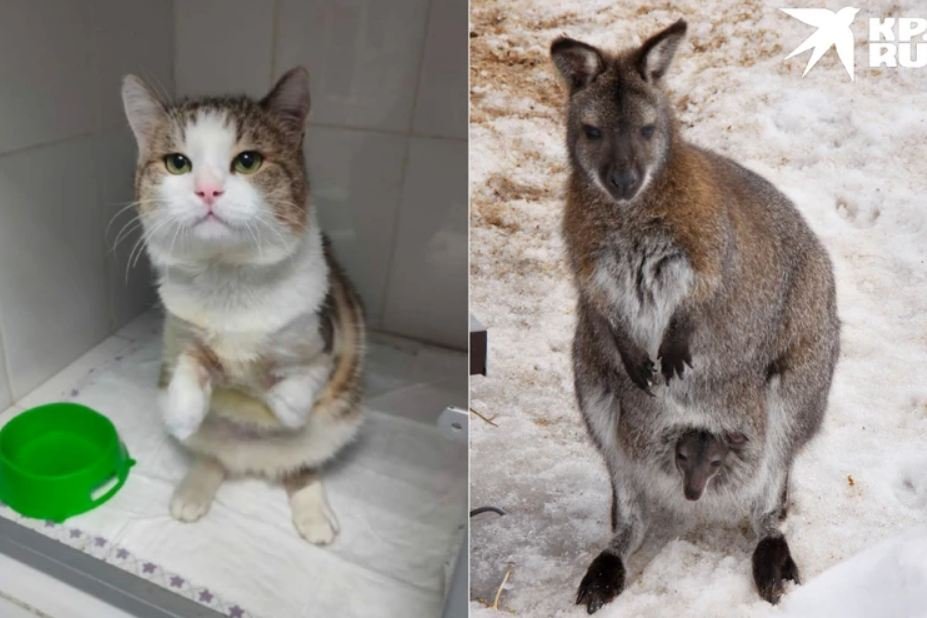
A feline with a unique name inspired by a marsupial captivated the affection of many followers. The cat, who goes by Kangaroo, was brought to orthopedic surgeon Sergey Gorshkov for assistance. Gorshkov ingeniously designed prosthetic limbs measuring 4 centimeters in length and 2 centimeters in width to aid the special cat.
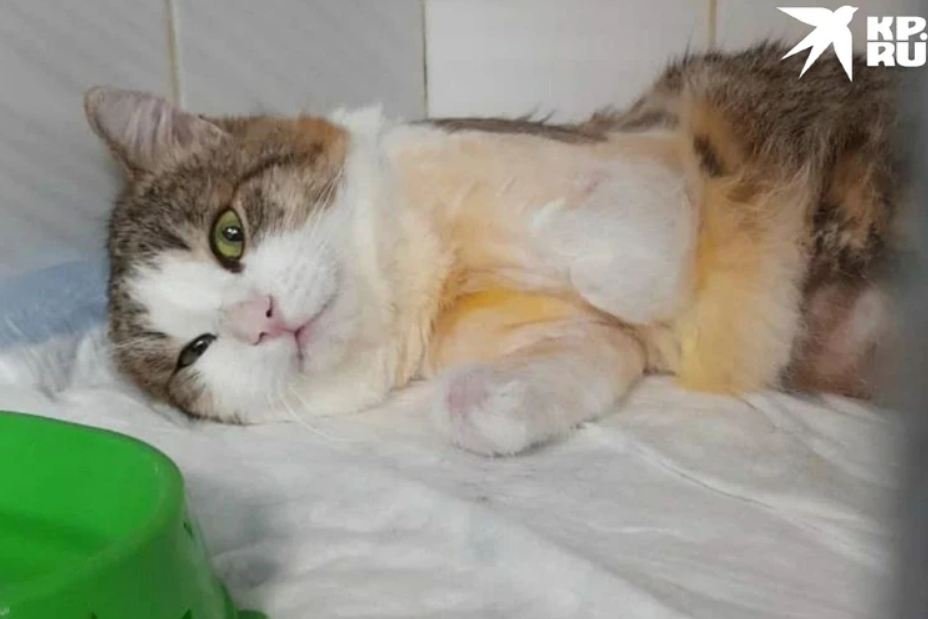
The feline that was rescued from blood poisoning had trouble walking and could only stand on its hind legs. According to Sergey Gorshkov, an orthopedic surgeon at the BEST veterinary clinic, this was the 42nd animal in which prostheses were implanted. The cat had already recovered from the blood poisoning, but its stumps were small and had healed. A CT scan was performed, and a special program was used to create a prosthesis model. The patient also suffered from feline immunodeficiency virus, making the operation even more challenging. Despite this, the prostheses were successfully implanted into the cat’s bones, and bionic paws were added. The cat, nicknamed Wallaby, can now walk around the clinic and will be discharged in 5-7 days.
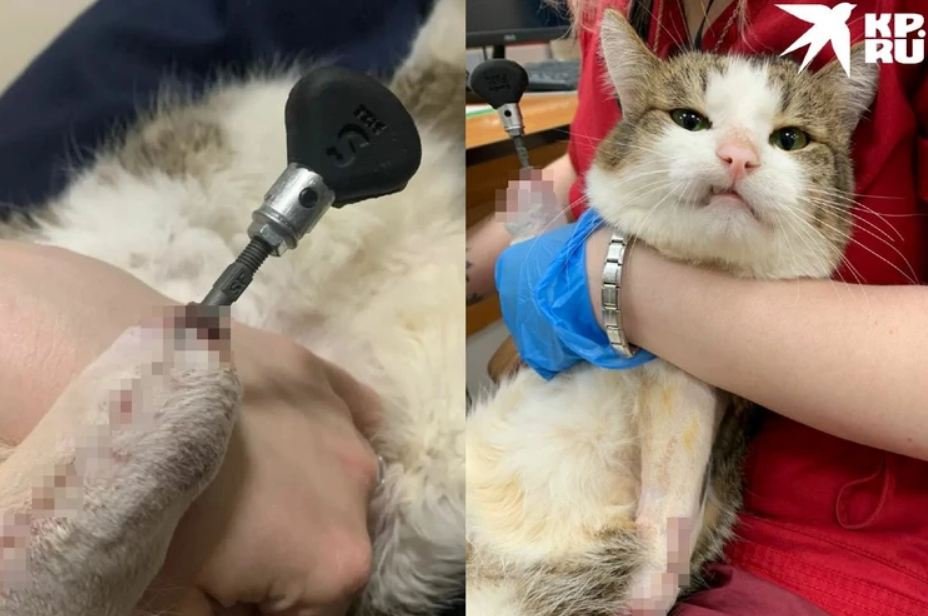
The Wallabies, now content with their relatives, are happily running and playing. Yulia and her shelter subscribers were ecstatic to witness the transformation of a sad “kangaroo” into a well-fed and playful cat that enjoys eating, running, and even grooming itself with prosthetics. However, Yulia is not yet willing to part with the Wallaby, not just because of her love for animals but also because of the cat’s need for constant injections and immune care due to feline HIV. Once the cat fully adjusts to its new life and responsible owners are located, the pet will be given over to them.
